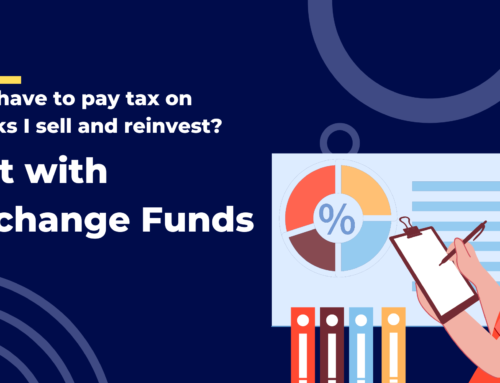How does the majority of the internet answer the question of should I sell my Restricted Stock Units (RSUs) when they vest?
Almost always with a big fat YES. But jumping to the conclusion that this is the right answer for you is shortsighted and could lead to you to sub-optimal tax liabilities.
We have written on the subject extensively. As a CFP I will always start by saying, this is a complex matter. It should be a part of your overall wealth building strategy and should be carefully analyzed by your CFP. Read further to see a couple examples or schedule a free consultation with us now and we can help analyze your entire situation.
We helped our readers understand how RSUs are very similar to your salary and how to overcome emotional hurdles during the sales process. The challenge is even greater as you are navigating an IPO. For the most part, we do believe it makes sense to sell your RSUs when they vest. However, there are occasions when traditional advice doesn’t always fit the mold.
Should you sell your RSUs right away can always be answered by first evaluating your own financial situation. Click To TweetYour financial ability to tolerate risk backed by a strong belief in your employer’s future makes a challenging case for selling RSUs right away. Even though owning company stock while being employed poses a double risk. A decrease in the value of your assets and loss of income.
If you have more time, you have the ability to recuperate from the loss. If your RSUs make up a fraction of your wealth, a complete loss might not set you back permanently.
So if you fit into this category and you just refuse to sell your RSUs when they vest here are a couple of scenarios where you can apply financial intelligence to your decision.
This is your last batch of RSUs that will vest
While you may not want to accumulate the majority of your wealth in your employer equity you may want to see the fruits of your labor pay off. Using future vesting is the perfect way to participate in the growth of the stock.
Traditionally RSUs, like most equity compensation, have a 4 year vesting period. Certain high-value employees could receive a refresh, a promotion, or retention incentives. However, these additional grants of RSUs are not guaranteed.
Depending on how far along you are in the 4-year vesting schedule, upcoming vests will allow you to participate in the upside. While you don’t own them right now, if the company stock goes up, your RSUs, while fixed in the number of shares, will be worth more. Based on how much of your employer equity you want to own, you will decide when you want to stop selling your RSUs right away.
If you haven’t sold any RSUs up to this point in time you have a decision to make. Which RSUs should you sell?
The question is purely a matter of tax efficiency. You should sell the RSUs that have either lost you money or those that are at break even. The goal is to own a specific amount of employer shares while realizing the least amount of taxes.
As an example, let’s say you have 100 shares. You want to hold only 50. 50 have made you money and 50 have lost you money. In order to get to your goal and pay the least amount of taxes, you should sell the 50 that have lost you money.
If you need additional clarification on this example and would like to use your own situation reach out to your advisor or tax professional.
IPO Lock-Up Period and Long Term Capital Gains
When asking yourself if you should sell your RSUs when they vest you need to evaluate the tax impact. In most scenarios when your RSUs vest you can sell them immediately and there is almost no tax impact. However, there is a special time in a company’s life where this is not true.
Your company just went IPO, your vesting officially occurred on the IPO date, you can’t sell your shares for 6 months, and your company stock price is increasing. This is a scenario that can happen due to a lock-up period. In this case, I would encourage you to hold it for 6 more months. You will sell it in one of two scenarios.
An additional 6 months pass, for a full year and 1 day, or the stock drops down to the price at IPO.
The benefit of waiting for an additional 6 months is the long-term capital gains tax rate. However, if the stock reverts to the original IPO/Vesting date price, don’t hesitate to sell since there will be no additional tax benefit.
These 2 unique cases present opportunities for you to accumulate your RSUs. The benefits in these cases outweigh the risk and tax incentives. In all other cases, you should strongly consider selling your RSUs. Remember, RSUs are simply income in the form of your employer shares.
If you got the same amount of money in cash would you go and buy the same amount of your company shares as you were granted?
As always there is an exception to every rule. Everything changes when you introduce ESPP to the mix.
Selling your employer’s stock can be a hard decision to make. You don’t need to make the decision alone! We would love to provide you a free consultation, answer your questions, and see how we can be of help.
Click HERE to get your questions answered.








